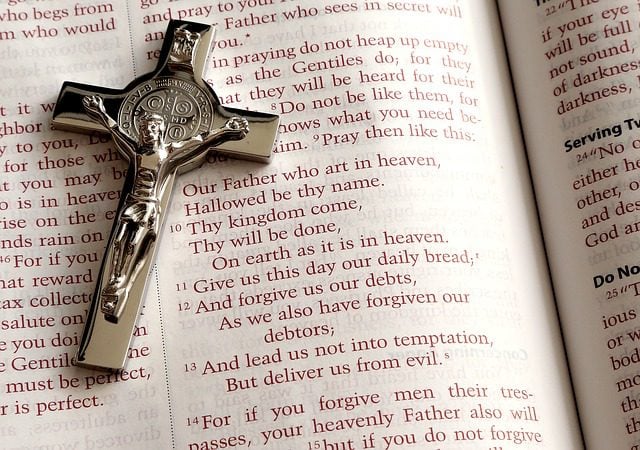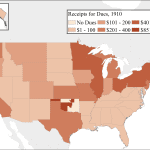
Photograph by “jclk8888” (7-7-13) [Pixabay / CC0 public domain]
*****
Luke 23:39-43 (RSV) One of the criminals who were hanged railed at him, saying, “Are you not the Christ? Save yourself and us!” [40] But the other rebuked him, saying, “Do you not fear God, since you are under the same sentence of condemnation? [41] And we indeed justly; for we are receiving the due reward of our deeds; but this man has done nothing wrong.” [42] And he said, “Jesus, remember me when you come into your kingdom.” [43] And he said to him, “Truly, I say to you, today you will be with me in Paradise.”
[T]he immediacy of ultimate bliss upon death for a Christian is confirmed by many other texts, including the thief on the cross who went that very day to paradise (Luke 23:43).
1 Peter 3:18-20 For Christ also died for sins once for all, the righteous for the unrighteous, that he might bring us to God, being put to death in the flesh but made alive in the spirit; [19] in which he went and preached to the spirits in prison, [20] who formerly did not obey, when God’s patience waited in the days of Noah, during the building of the ark, in which a few, that is, eight persons, were saved through water.Ephesians 4:8-10 Therefore it is said, “When he ascended on high he led a host of captives, and he gave gifts to men.” [9] (In saying, “He ascended,” what does it mean but that he had also descended into the lower parts of the earth? [10] He who descended is he who also ascended far above all the heavens, that he might fill all things.)
Scripture teaches that death is final, and a destiny of woe or bliss is immediate.
Likewise, unbelievers enter hell at the moment of death. [in context, referring to the wicked rich man of Luke 16:19 ff.]
This is hopelessly confused and self-contradictory, on many levels. First of all, Jesus expressly noted that the rich man was “in “Hades” (Lk 16:22-23), not hell. Hades (Old Testament, Sheol) is the netherworld, or abode of the dead before the death, Resurrection, and Ascension of Christ. This was obviously before that time because Jesus told the story to His disciples as a past event, and He had not yet died on the cross. Hades is contrasted with hell (“lake of fire”) in Revelation 20:14.
This third state in the afterlife, Hades (or whatever one wishes to call it), cannot be equated with hell, because Jesus went there (or so it seems quite reasonable to assume; where else would it be?) and “preached to the spirits in prison” (1 Pet 3:19) and “captives” (Eph 4:8) in “the lower parts of the earth” (Eph 4:9), whom He then “led” out of their captivity “when he ascended on high” (Eph 4:8).
None of that makes the slightest bit of sense if this is hell (the place of eternal punishment), because the inhabitants there are damned forever and cannot ever be led out of hell. If they could be, that would be salvation attainable after death (or perhaps even a form of universalism), which Catholicism doesn’t teach at all. We believe that all in purgatory are already saved and inevitably destined for heaven as their final state.
Thus, we must conclude that many saved people after death, before the time of Christ, were in Hades, and were led out of it to heaven (whereas no one can be liberated from hell). And this means that an immediate “destiny of woe or bliss” for all people is a false and unbiblical statement.
The Catechism of the Catholic Church states:
633 Scripture calls the abode of the dead, to which the dead Christ went down, “hell”— Sheol in Hebrew or Hades in Greek—because those who are there are deprived of the vision of God. Such is the case for all the dead, whether evil or righteous, while they await the Redeemer: which does not mean that their lot is identical.
Blessed John Henry Cardinal Newman ties all this together in one of his “parochial and plain sermons” (The Intermediate State): preached as an Anglican in 1836, nine years before he became a Catholic:
There is another word used in Scripture to express the abode of just men made perfect, which gives us the same meaning. Our Lord is said in the Creed to have “descended into hell,” which word has a very different sense there from that which it commonly bears. Our Saviour, as we suppose, did not go to the abyss assigned to the fallen Angels, but to those mysterious mansions where the souls of all men await the judgment. That He went to the abode of blessed spirits is evident, from His words addressed to the robber on the cross, when He also called it Paradise; that He went to some other place besides Paradise may be conjectured from St. Peter’s saying, “He went and preached to the spirits in prison, who had once been disobedient” [1 Pet 3:19-20].
The circumstances then that these two abodes of disembodied good and bad, are called by one name, Hades, or (as we happen to express it) hell, seems clearly to show that Paradise is not the same as Heaven, but a resting-place at the foot of it. Let it be further remarked, that Samuel, when brought from the dead, in the witch’s cavern, said, “Why hast thou disquieted me, to bring me up?” [1 Sam 28:15], words which would seem quite inconsistent with his being then already in Heaven.
Therefore, Holy Scripture describes a third state besides heaven or hell, which is precisely what purgatory is (and purgatory bears some resemblance to Hades in some ways). What has been proven is that this particular argument of Geisler’s against purgatory (everyone immediately goes to heaven or hell at death) fails. It dies the death of being subject to far too many (biblical) qualifications: maybe not a thousand, but more than enough to dispose of it.
















